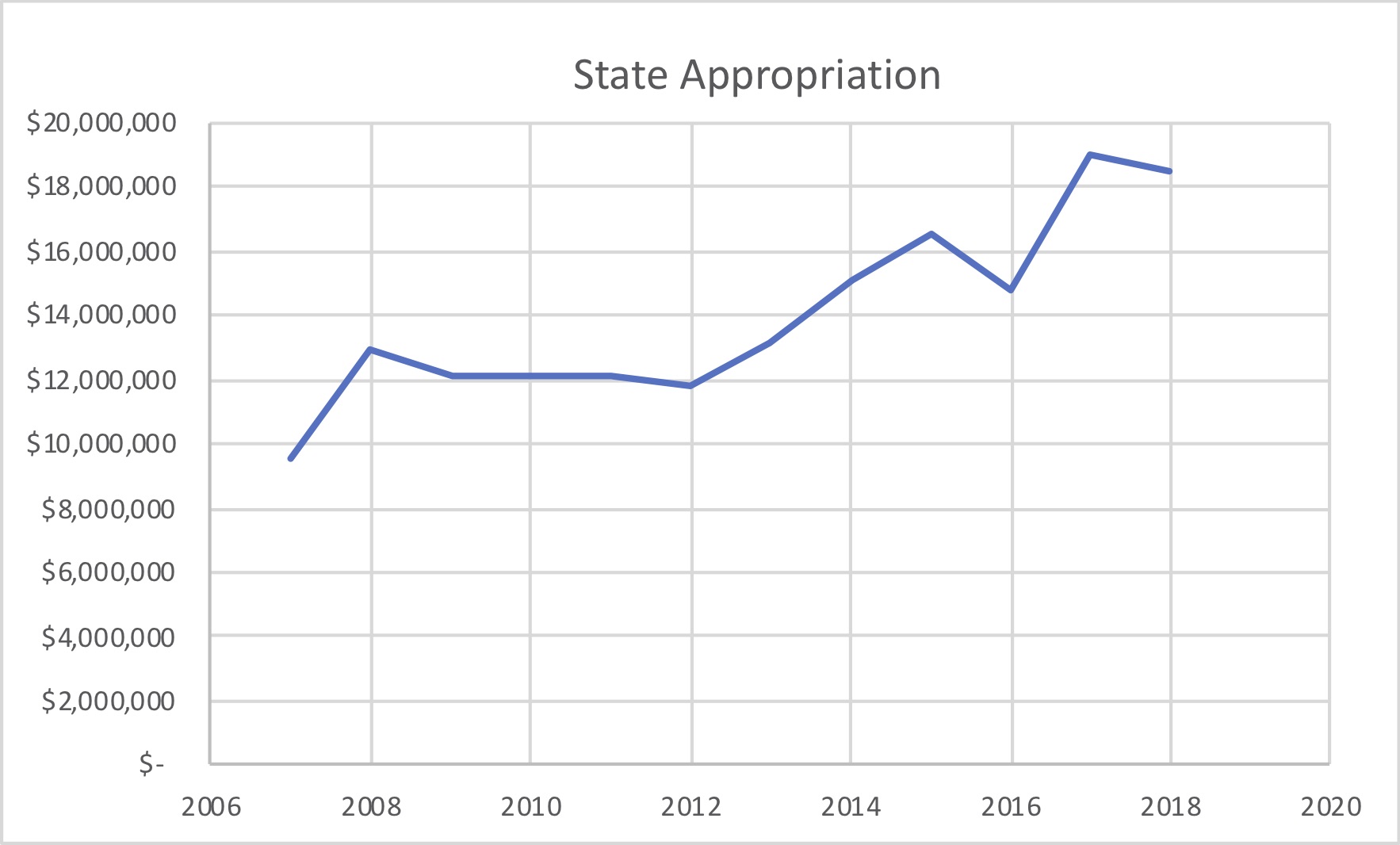This particular clip comes from the September 24, 2019 Board of Trustees meeting (transcript), and it’s got a little something for everyone. WCC’s CFO, Bill Johnson, is giving a year-end report on FY2019.
Act One: How To Deceive Without Really Lying
Bill Johnson introduces WCC’s revenues: 48% from the very generous taxpayers of Washtenaw County. 30% from student tuition and fees. 14% from the State of Michigan.
Then come the expenses. Instruction takes 42% of the General Fund. The technology slice in 2019 was a little large because they fired 31 people and then had to pay them off. Later in Act 1, Ruth Hatcher wants to know what instructional expenses were the previous year. As it turns out, they were 43% in FY 2018, but instructional spending was down only due to the “one-time anomaly” in IT.
Just so you know, IT is not an instructional expense. What Bill Johnson said here is that WCC cut the instructional budget to pay off the $2.3M IT buyout.
(I’m just going to let that hang there for a minute.)
Then, Dave DeVarti goes looking for the debt service, which has gotten lost amid all of the numbers. Oh, there it is! It’s not in the General Fund; it’s been buried in the Plant Fund. And it’s $262,000.
“Debt service” includes both the principal and the interest, but Bill Johnson reported just the interest payment. The actual debt service also included the bonds that generated that $262,000 in interest. The College is still paying off the HFC at about $1M per year. There’s also the TI renovations – which won’t clear the books until 2037. There’s also some other debt that WCC consolidated with the HFC debt in 2015.
Act Two: A Funny Thing Happened On The Way to the Bank!
Bill Milliken, Jr., kicks off Act II with an “innocent question” about State Aid.
“What’s the bar chart on state aid look like over several years?”
Spoiler alert!

First, it’s a pretty contrived question. Why single out the state aid revenue? The answer is just as contrived.
“Well that – that’s a really good question. We just had a request for that!
Really? What are the odds?
So, the State Aid for WCC peaked four years after the College opened.
“And it’s been declining ever since!”
“GASSSSPPPP!”
(Notice how they don’t discuss the state aid in ACTUAL DOLLARS? I wonder why?)
Then, Dianna McKnight Morton comes in from left field with a concern about babies.What are we going to do about the babies!? We’re losing babies! How are we even going to be able to afford a community college without those missing babies?
Good news, Dianna! The AAPS has found the missing babies! That’s why they asked for (and got) a $1B bond to rebuild all of their schools. They just bought two big plots of land to build even more schools for the 10% INCREASE in the school-age population we’re expecting here in Washtenaw County.
And to close out Act II, Rose Bellanca swims in to mix concepts for everyone.
We need mixed use development to make up for the 10% increase in the school-age population we’re expecting in Washtenaw County. Not to mention the substantial increases we’ve received in the state aid! Rose explains to Bill Milliken, Jr. that a hotel and convention center will offset growth in tuition revenues and the Boatload of Money we get from the taxpayers of Washtenaw County!
Yay! We can save WCC by building a Starbucks in the TI parking lot!
Recapping the WCC Board Meeting
We have two Trustees who are doing their jobs by looking for the money.
The rest of this ensemble cast is playing games with the voters. They’re spouting the scripted fiction they’ll use to justify diverting education taxes to hotel construction. It is wholly unacceptable for the College President, its CFO and the Board of Trustees to deliberately distort the College’s financial position and regional growth projections to justify wasteful and unnecessary capital projects.
If you’ve never attended a WCC Board Meeting, you’re missing out on some quality entertainment. It’s not free, though. It will end up costing us all millions.
Photo Credit: Peter Franz , via Flickr.com


















